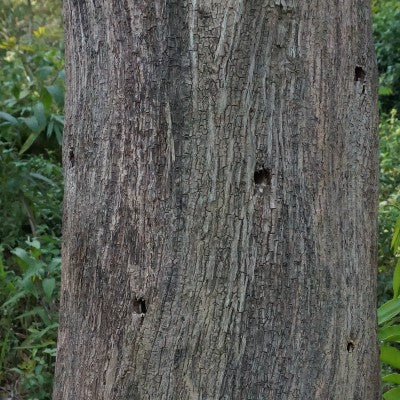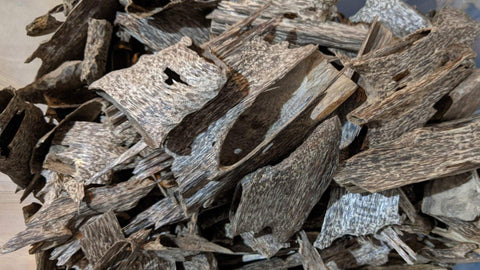Menu
-
-
F.A.Q
- How to identify genuine agarwood chip, natural or cultivated
- How to identify oil injection / absorption fake agarwood beads
- How to know if there are more than one oil in your oil
- How to make your wood bracelet or mala darker
- How to tell if an Agarwood bead sinks WITHOUT sinking it under water?
- How does back flow incense work and how do you burn it?
- Where to start if you don't know what agarwood is ?
- Why are you losing money if you buy seeds and plants?
- Which agarwood incense should I choose?
- Frequently Asked Questions
- Agarwood Related Articles
- Shipping
-
SHOP - Agarwood
-
SHOP - Other Fragrant Wood
-
SHOP - Incense Holder and Burner
-
- FREE Oud Oil guide
- Testimonials
- "Why did you buy this?"
- Contact us
- About Us
- +61430284329
- Login
-
English


Agar Wood in the Bible: Is It Really a Meaningful Gift for Christians?
April 23, 2022 9 min read
Table of Contents:[hide]
A friend of mine, Tony, wanted to choose a gift to someone who was Christian and special to him because his birthday was coming up. Walking around some Christian supplies stores around the Brisbane area, he mentioned to me that it was challenging to select an appropriate gift for his friend. He also said he bought different gifts before, but he felt disconnected.
The church Tony went to burnt incenses occasionally, for example, frankincense which people enjoyed very much.
I then suggested he search the Bible for the term “aloes,” which means agarwood. He was interested and thanked me for the information. The information below is from the Holy Bible.
What is Agarwood?
Agarwood, known for its significance since ancient times, has been used in religious contexts and is mentioned in biblical passages, highlighting its historical and spiritual importance. For more details, please see here
Definition and Origin of Agarwood Incense
Agarwood incense is a unique and precious type of incense made from the resin of the Aquilaria tree, which is native to Southeast Asia. This resin is formed over several years, often as a result of deliberate inoculation or natural infection by certain fungi. The process results in a distinctive fragrance that is both woody and sweet, with subtle vanillic undertones. Historically, agarwood incense has been cherished not only for its aromatic qualities but also for its medicinal properties, being used as an antiseptic, anti-inflammatory, and digestive aid in traditional medicine.
Aquilaria Species that Produce Agarwood
Several species of the Aquilaria tree are known to produce agarwood, including Aquilaria malaccensis, Aquilaria crassna, Aquilaria sinensis, and Aquilaria malaccensis var. tonkinensis. These trees are primarily found in South and Southeast Asia and are highly valued for their fragrant resin. Each species contributes to the rich diversity of agarwood, offering slight variations in scent and quality, making agarwood a highly sought-after commodity across different cultures and regions.
Conservation of Agarwood-Producing Species
The conservation of agarwood-producing species is crucial, given their high demand and the threats they face from overharvesting. The Convention on International Trade in Endangered Species of Wild Fauna and Flora (CITES) has listed Aquilaria malaccensis in its Appendix II since 1995, indicating that it is potentially threatened. In 2004, all Aquilaria species were included in Appendix II, although some countries have reservations about this listing. Efforts to conserve these species include the establishment of protected areas, sustainable harvesting practices, and reforestation initiatives, all aimed at ensuring the long-term survival of these valuable trees.
Reasons why Agarwood is a thoughtful gift for Christians
Agarwood, also known as aloeswood, is mentioned several times in the Bible, making it a meaningful gift for Christians. In Psalms 45:8, it is written, "All your robes are fragrant with myrrh and aloes and cassia; from palaces adorned with ivory the music of the strings makes you glad." This verse highlights the precious nature of agarwood, associating it with royalty and divinity. Additionally, in Numbers 24:6, it is compared to the cedars of Lebanon, symbolizing strength and beauty. The spiritual significance of agarwood is further underscored by its use in ancient rituals, where its smoke was believed to serve as a bridge between the divine and the earthly. It also holds a significant place in Christian traditions and practices.
"Aloes that Jehovah has planted."
Agarwood was named as the Wood of God. The reason: Jehovah has planted it
“aloes that Jehovah has planted (Numbers 24:5, 6) “
Aloes were used to perfume garments and beds, according to the Bible. (Psalm 45:8; Proverbs 7:17; Song of Solomon 4:14) The aloe vera of Scripture most likely came from Agarwood (Aquilaria). When the wood has decayed, it secretes fragrant oil and resin
In the Old Testament, noble and alluring fragrance of aloeswood (agarwood) is noted in Psalm 45:8, when describing a king’s wedding preparations: “All your robes are fragrant with myrrh and aloes and cassia.”
The appealing power of aromatics, including agarwood, is further examined in Song of Songs 4:14, when one lover praises the other for their attractive qualities: “Your plants are an orchard of every kind of incense tree, with myrrh and aloes and all the finest spices.”
The tents of Israel are likened to “aloe trees planted by Jehovah” in the Bible. (Numbers 24:5, 6) This might be a reference to the form of the Agarwood tree, which can grow up to 30 meters tall and spread outwards. Although this tree does not grow in modern Israel.
A Dictionary of the Bible states that “there is nothing to forbid the idea that this and other trees not now known in [the region] were cultivated in the then wealthy and populous Jordan Valley.”
In the New Testament, Agarwood is mentioned several times in the Holy Bible, often referred to as “aloes.” One of the most notable references is in the Gospel of John (John 19:39-40), where Nicodemus, a Pharisee and secret follower of Jesus, brings a mixture of myrrh and aloes to anoint Jesus’ body after the crucifixion. This passage highlights the rarity and value of agarwood, as well as its role in sacred rituals.
Agarwood, known as aloeswood, appeared in the Holy Bible.
Jesus' body was anointed with myrrh and agarwood after being crucified. It was also a customary practice for the bride and groom to plant an agarwood tree as part of their wedding celebrations in the early Christian Church. Agarwood has long been valued by Catholicism, Protestantism, and other Christian denominations.
In addition, the priests and Christian believers use Agarwood in blessing, prayers and funerals.

Agarwood, aloeswood is mentioned in the Holy Bible (quotes obtained from Jehovah Witnesses jw.org):
"Like the valleys* they have extended a long way,
Like gardens by the river,
Like aloes that Jehovah has planted,
Like cedars by the waters."
All your garments are scented with myrrh and aloeswood and cassia;
From the grand ivory palace, stringed instruments make you rejoice.
“ You loved righteousness,+ and you hated wickedness.+ That is why God, your God, has anointed you+ with the oil of exultation+ more than your companions. your robes are all fragrant with myrrh and aloes and cassia.”
(Psalm 45:7)
Spikenard+ and saffron, cane*+ and cinnamon,+
With all sorts of trees of frankincense, myrrh, and aloes,+
Along with all the finest perfumes.+
(Song of Solomon 4:14) “And there came also Nicodemus, which at the first came to Jesus by night,
and brought a mixture of myrrh and aloes, about an hundred pound weight.
Then took they the body of Jesus, and wound it in linen clothes with the spices,
as the manner of the Jews is to bury.”
(John 19:39-40)
You will feel better connected to Him when using Agarwood.
If God planted it, would you like to use it?
“The resin, gums and woods of the evergreen plants brought spiritual enlightenment through their vapourous release when used as incense..” (Ross 2010)
The fragrant scent of agarwood, with its distinct sweet and smoky aroma, plays a significant role in spiritual practices, enhancing the connection to the divine.
Would you like to have a better spiritual connection with God by using what He planted?
Many people believe that when you pray with intention, you establish a connection with God, and incense acts as a “medium.” Better yet, God planted the material that makes the incense you are burning.

Source: self-taken
A Meaningful Gift for Christians
Given its deep-rooted connection to biblical events and Christian tradition, agarwood makes for a truly meaningful and thoughtful gift for Christians. Presenting agarwood as a gift can symbolize several spiritual and emotional aspects:
Fragrant wood, particularly agarwood, holds significant importance in religious and ceremonial contexts. Its calming effects and divine aroma are often highlighted in traditional practices, and it is frequently referenced in biblical scripture.
-
Connection to the divine: As agarwood is linked to sacred rituals and divine presence in the Bible, gifting it to someone can represent a wish for the recipient to experience a closer connection with God and spiritual growth.
-
Expressing love and care: Agarwood’s association with love and intimacy in biblical passages, such as Proverbs 7:17, can make it a fitting gift to express love, care, and appreciation for a loved one or a fellow believer.
-
Encouragement and support: As the story of Nicodemus demonstrates, agarwood played a role in anointing Jesus’ body, signifying reverence and honor. Gifting agarwood can thus convey encouragement and support, acknowledging the recipient’s spiritual journey and efforts.
-
Rarity and value: Agarwood’s scarcity and worth make it a luxurious and unique gift, reflecting the special bond between the giver and the recipient.
Finally, Agarwood does not have an expired date. It improves with age. The oil will become more viscous and smells smoother. If a perfume has genuine oud oil in it, it will have a longer shelf life.
The wood chips smell sweeter and smoother. Incense contains Agarwood chips will have the same properties, more aromatic after many years of storage.
How to use Agarwood if you are a Christian
Incense is used in Christian culture to create a pleasing atmosphere for worship. It is also used as a symbol of prayer, and to represent the prayers of the faithful rising to God.

The use of incense in Christian worship can be traced back to the Old Testament when it was used in religious ceremonies and as a part of the sacrificial system. In the New Testament, we see that incense is still being used in worship, particularly in the book of Revelation. Here, we are told that the prayers of the saints are represented by the smoke of incense rising before God.
The use of incense is also a reminder of the time when the Israelites were in the desert and their tents were filled with the fragrance of Jehovah. This was a time when they were close to God and His presence was with them. When we use agarwood as incense, it is a reminder that we are close to God and His presence is with us.
Try Our Agarwood incense here.
If you love heating raw incense such as frankincense, then I assume you will have charcoal and ash. In this case, try our Agarwood chips on your charcoal to see how you feel.
If you do not like smoke and still want to create a holy environment to feel spiritually connected, try our Agarwood oil.
Take a tiny dab on your "third eye" chakra between your eyebrows and forehead and your earlobes Be careful not to get the oil into your eyes (if you accident happens, flush your eyes under water).
You can also dab the oil oil on your wrist or around your neck. Wear it as a perfume.
You may also be interested in perfume made with other sacred aromatic ingredients in addition to Agarwood
Fragrance oils made with Sacred ingredients
There’s something special about these fragrance oils since they were created at the same time as the world. There is a holy life force from God. God formed the plants on the earth to nourish our bodies and help us grow.
In biblical references, 'aloes planted' serves as a metaphor for the beauty and divinity of Israel as envisioned by God, emphasizing its associations with luxury, sensuality, and spiritual significance.
Christians believe each of us is a gift from God. To be a blessing to one another, God has allowed each of us to survive in this world. We are here on earth to serve one another. When we follow this humble and empathetic practice, we pay tribute to our divine purpose and benefit one another. Our Lord will anoint us with the anointing oil.
This oil is made from agarwood, frankincense, sandalwood or rose. Take this blend and put it on your body which will brighten up your heart and spirit, as well as your body and mind. TRNP Oud Attar Oil Zeeba is crafted with the above ingredients.
You can also share this divine scent with more people by diffusing it with your ultrasonic diffuser.
In short, Aloeswood (Agarwood) is a thoughtful gift for Christians as it helps them feel spiritually connected to God. The Bible mentioned the tree was planted by God Jehovah. You can use Agarwood chips, Agarwood incense and Agarwood oils to achieve this connection. If you’re looking for an aromatic way to deepen your spiritual practice, try our agarwood range today.
More references:
Agarwood and the Environment
Sustainable Harvesting Practices
Sustainable harvesting practices are essential to ensure the long-term conservation of agarwood-producing species. This involves selective harvesting of mature trees, reforestation efforts, and the use of eco-friendly methods to extract the resin. Many agarwood producers are now adopting sustainable and responsible sourcing practices, such as certification programs and fair trade initiatives, to ensure that their products are both environmentally and socially responsible. By supporting these practices, consumers can help protect the natural habitats of agarwood trees and promote the well-being of local communities involved in its production.
Leave a comment
Comments will be approved before showing up.
Also in News

What is Tasbih? The Deep Meaning of Subhan Allah and the Role of Prayer Beads
November 09, 2025 4 min read




